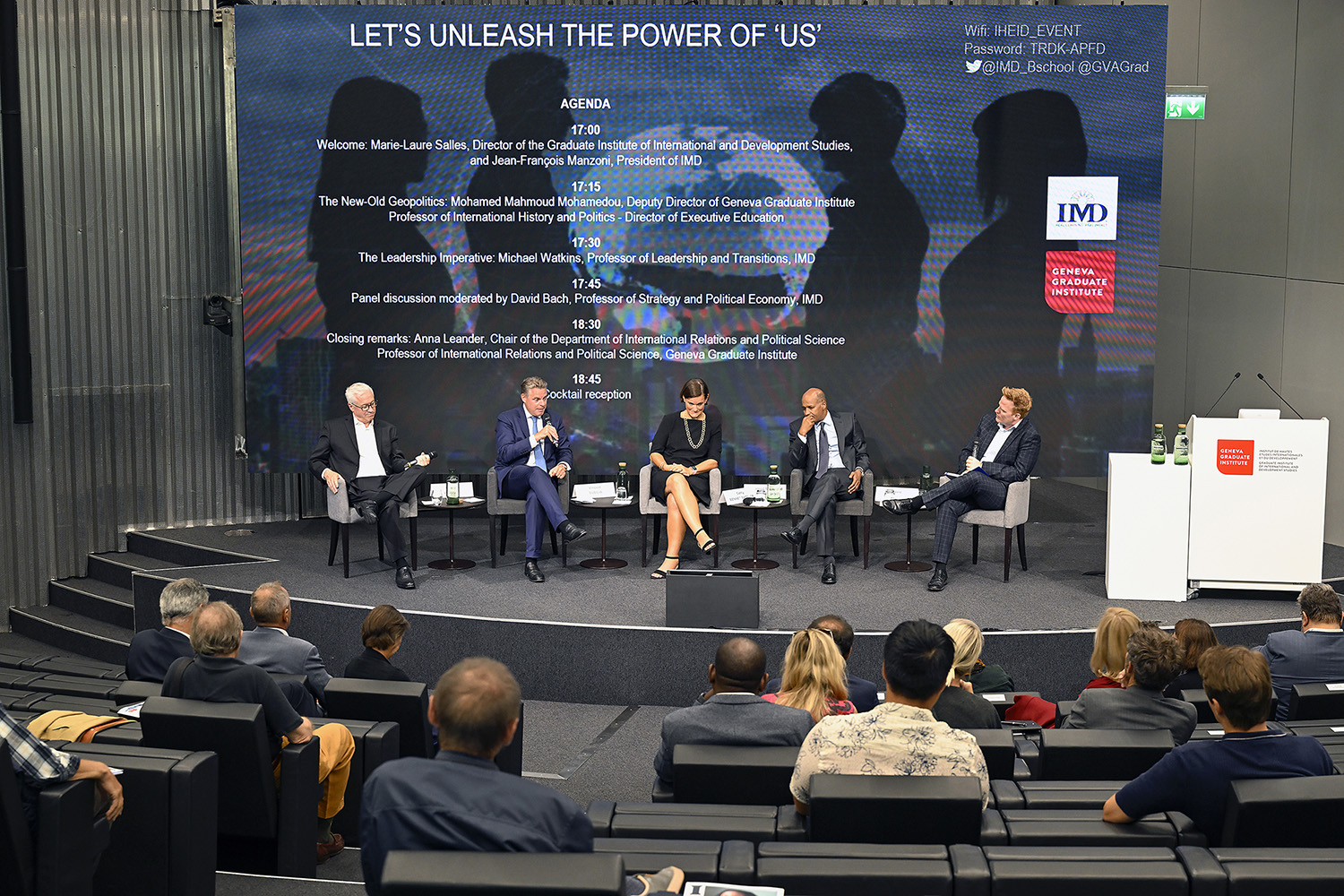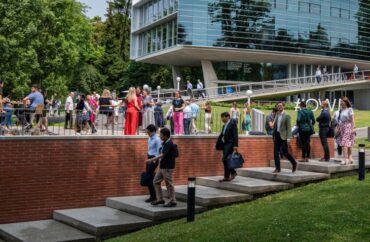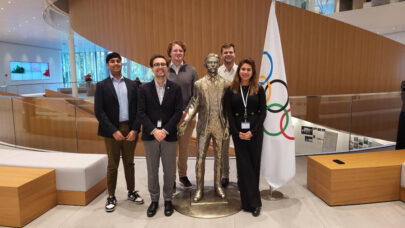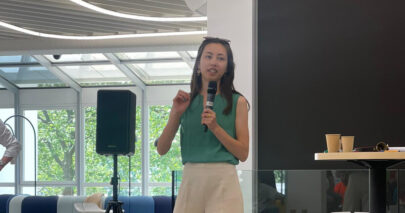
From the COVID-19 pandemic to the war in Ukraine and the climate emergency, executives today are facing an unrelenting barrage of crises. To equip leaders from both the public and private sector with the cross-disciplinary skills needed to overcome paralyzing political divides and tackle complex challenges, IMD and the Geneva Graduate Institute have announced a new strategic partnership at a signing ceremony in Geneva.
In her opening address at the event on 29 August entitled “Let’s unleash the power of ‘us’”, Marie-Laure Salles, Director of the Geneva Graduate Institute, spoke of the need for a “paradigm shift” to a world which fosters more collaboration to reduce the negative externalities stemming from unfettered economic growth.
Through the partnership with IMD, the institutions are proposing “a new form of training for decision makers across all sectors” that will nurture the critical thinking and engagement required to prepare a generation of responsible leaders for a radically uncertain environment, she said.
The collaboration will allow selected courses and/or electives to count towards each institution’s respective flagship programs as well as enabling faculty from both institutions to participate in each other’s activities. IMD and the Geneva Graduate Institute will also explore the creation of a joint program focusing on leadership and international relations, as well as the development of joint publications.
“We want to develop leaders who have the drive and capabilities to develop organizations that will be more prosperous, but which will also contribute to a more sustainable and inclusive world,” said IMD President Jean-François Manzoni.
Making sense of the geopolitical context
As leaders navigate this increasingly uncertain environment, they will need to interpret the geopolitical context and its implications for business decisions.
In his keynote address on the topic of “The new-old geopolitics”, Professor Mohamed Mahmoud Mohamedou, Deputy Director of the Geneva Graduate Institute, described the fundamental shift in geopolitics since the turn of the 21st century, characterized by the emergence of a new cast of non-state actors.
“Today we have global firms that are as powerful, if not more powerful, than states,” he said, pointing to the rise of social media and other non-state actors such as private military contractors, global civil society, and active citizens that are able to influence and change the course of geopolitics.
Mobilizing a cadre of crisis leaders
Given the scale of the challenges facing the world today, Michael Watkins, IMD Professor of Leadership and Organizational Change, said it would be reckless to expect good leaders to emerge fully formed as times get harder.
“There has never been a point, certainly in modern times, perhaps even in the history of our species, when leadership has been more critical,” he said, urging the audience to challenge two persistent beliefs: the first that history progresses through a cycle of good times and bad times; and second, that good leaders just show up as events unfold.
“We must mobilize collectively and rapidly to develop leaders, many leaders, who are prepared to deal with the crises to come, much like militaries build reserve forces that can be called up in times of war,” he said.
This will involve screening people to find those with the right raw material in terms of temperament and intelligence to become the leaders we need, and equipping them with the right skills, he said.
Another challenge is developing leaders who have the energy and enthusiasm to sustain their leadership through multiple crises.
Referencing Ukraine’s President Volodymyr Zelensky, Watkins praised him for his ability to mobilize the Ukrainian people to resist Russia’s invasion, but said the true test would come in whether he could keep this momentum going.
Diplomacy 2.0
In a panel discussion moderated by IMD Professor of Strategy and Political Economy David Bach, experts discussed the failure of modern-day diplomacy to prevent conflict in today’s turbulent times and the need to reinstall leadership skills into the curricula of international relations.
Citing her own experience at humanitarian relief organizations, IMD alumna Catty Bennet Sattler, Director of Human Resources at UNHCR, said the most effective leaders were those with the courage to act on limited information.
“A good leader is someone who can make decisions when their agenda is blown out of the water and can make decisions even if he or she knows they might not be making the right ones,” she said.
The panelists also spoke of the need to shift the understanding of leadership away from the idea of a “providential leader” towards something more commoditized that can be disseminated across a broader pool of people via knowledge and training.
“We need to be focused on identifying and developing those leaders because we need lots of them,” said Watkins. The work here is not to develop and find that one great leader; it’s to build leadership into as many people as possible.”



